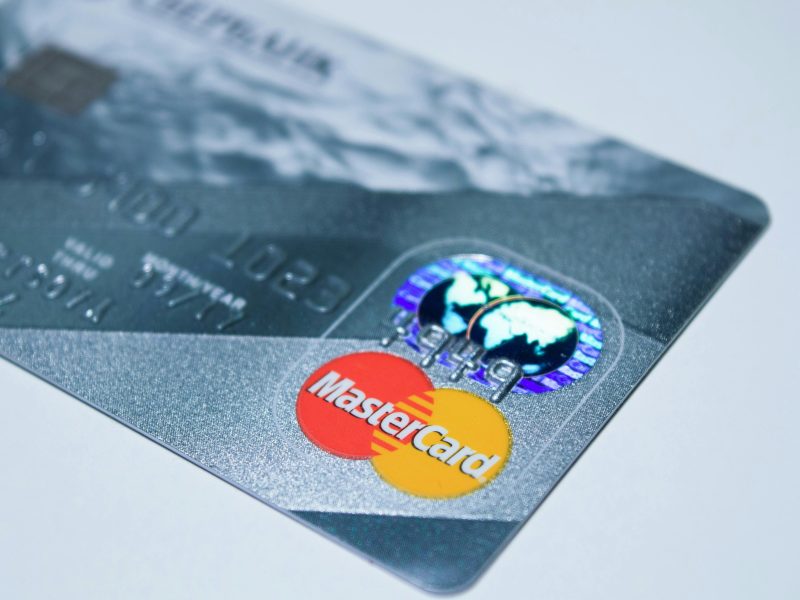How to Stop Interest Charge on Credit Card.
Credit cards are convenient financial tools that can quickly become costly when interest charges pile up. Understanding how to halt these charges is crucial to maintaining financial health. In this insightful guide, we’ll navigate the tactics and strategies to stop interest fees from accruing and control your credit card costs.
What Steps Can I Take To Stop Interest Charges On My Credit Card?
Preventing interest on your credit card doesn’t have to be daunting. A few prudent steps can safeguard your finances from high interest.
To begin with, always aim to pay off your credit card balance in full every cycle before the due date. This is the most effective strategy to prevent interest from accumulating. An automated payment setup can be a lifesaver, ensuring you never miss a deadline and dodge late fees and possible extra interest.
For those with existing debts, transferring the balance to a credit card with a 0% introductory APR offer can temporarily relieve interest charges—a wise move for anyone focused on reducing their debt. Still, it is also wise to shop for cards with a grace period, a window post-billing cycle where you can clear the balance without interest penalties.
Should these options seem limited, reaching out to your card issuer might yield positive results. A lower interest rate can often be negotiated, particularly if you have a commendable credit score and a history of timely payments.
- Pay off the balance in full: Set a reminder or automatic payment to ensure you never miss this crucial step.
- Automatic payments: Eliminate the potential for forgetfulness and ensure on-time payments.
- 0% APR balance transfers: Temporarily halt interest accumulation while you pay down debt.
- Look for grace periods: Find cards that offer this benefit,, as it can be a lifesaver during tight financial times.
- Negotiate lower rates: A phone call to your card issuer could be all that stands between you and a more manageable interest rate.
Conclusively, actively managing your credit card and utilizing the tools at your disposal can greatly reduce or even eliminate the burden of interest charges.
Is It Possible To Avoid Interest Charges By Paying The Balance In Full Each Month?
Indeed, one of the most reliable methods to bypass interest fees on your credit card is by paying the entire balance before the due date each month. Creditors often provide a grace period, typically 21 to 25 days, where you won’t incur interest if you settle the full balance.
Regularly clearing your balance helps you escape interest charges and contributes to a healthier credit score. Automating your payments can lift the burden of remembering due dates, and staying alert to your statement closing date will ensure that you are prepared to take advantage of the grace period provided.
- Full payment for each statement: This strategy is your defense against interest.
- Use the grace period: Understand and utilize this period effectively to sidestep interest.
- Automate full balance payments: Set up automatic transfers to avoid human error.
- Know your statement date: Plan your payments around this date to make the most of your grace period.
Ultimately, staying disciplined with your payments keeps you in a favorable financial position, free from the shackles of interest accrual.
Can I Negotiate A Lower Interest Rate With My Credit Card Company To Reduce Interest Charges?
A smart approach to diminishing interest charges is to negotiate a lower rate directly with your credit card issuer. A strong record of timely payments improves your bargaining power. Before initiating the discussion, arm yourself with information about competing credit card offers to fortify your position.
Should negotiations not sway in your favour, transferring your balance to a card with a more attractive rate could be a sound alternative, mindful of any transfer fees. Moreover, a periodic review of your credit score is advised. An improved credit status is often rewarded with superior interest terms.
- Inquire about rate reductions: Contact your card issuer and ask if they can offer you a better rate.
- Use competitive offers: Leverage other credit card deals as a negotiation tactic.
- Consider a balance transfer: If negotiations stall, a transfer might be beneficial.
- Monitor your credit score: A favorable credit score bolsters your negotiating stance.
- Savings on accumulated interest: A reduced rate can lead to substantial overall savings.
Negotiating might seem daunting, but it can be a fruitful endeavor that significantly eases your interest burden over time.
Are There Specific Types Of Credit Cards That Offer A Period Without Interest Charges?
For those looking to make large purchases or consolidate debt without the immediate pressure of interest, certain credit cards offer a respite. Many cards feature 0% APR introductory offers for new purchases or balance transfers, extending from 6 to 18 months.
Usage of these offers must be strategic—always make minimum payments on time and have a clear plan to pay off the balance before the promotional period ends.
Moreover, balance transfer cards specialize in offering interest-free periods for debt transfers, and new purchase cards similarly provide interest holidays to encourage spending.
- Introductory 0% APR: Look for cards with these offers and understand their time limits.
- Balance transfer cards: If debt consolidation is your goal, these can be particularly useful.
- New purchase cards: Spend without interest but to pay before the promo ends.
- Adherence to card terms: Maintain your part of the bargain to continue benefiting from the offer.
- Terms and conditions: Fully comprehend the fine print to avoid unpleasant surprises.
These cards can act as financial breathing spaces, offering valuable periods of interest-free transactions, provided you navigate their terms with care.
How Do Grace Periods On Credit Cards Work To Avoiding Interest Charges?
Grace periods are akin to a financial breather, a time allowance between your billing cycle’s completion and your payment due date. During this interval, your new purchases aren’t subject to interest, provided you pay your full balance on time. It’s typically set at 21 to 25 days.
However, not all transactions are equal; cash advances and balance transfers often begin accruing interest immediately, void of any grace. Moreover, once you’ve carried a balance forward, you might forfeit your grace period, prompting interest to build on new purchases too.
- No interest charge during this time: A grace period provides a temporary shield from interest on purchases.
- Full payment required: You benefit from the grace period by settling the full balance.
- Cash advances and balance transfers often don’t enjoy a grace period.
- Consistent full payments: To perpetuate the grace period, avoid carrying a balance over to the next cycle.
The grace period on your credit card can be a powerful ally in combating interest charges if used judiciously and consistently.
Navigating Interest-Free Credit
Understanding and utilizing the strategies discussed can lead to a significant reduction or complete elimination of credit card interest charges. From paying off your balance in full each month, setting up automatic payments, and negotiating for lower rates, to choosing the right card with a grace period, every action can contribute to financial freedom.
Dive into responsible credit card usage, and watch as the interest burden melts away, leaving you with a sturdier fiscal foundation and peace of mind.
If you find value in reading this article, How to Stop Interest Charge on Credit Card, kindly share it with your friends on all social media platforms.
Please Help Share This Post









